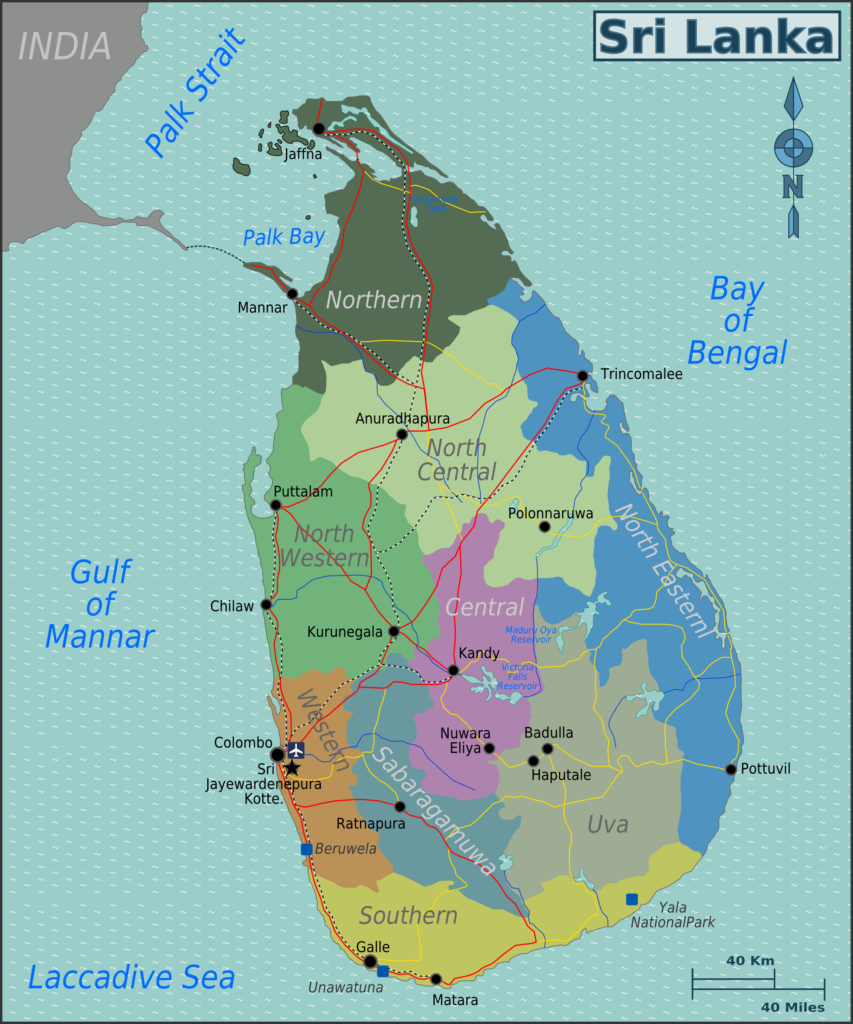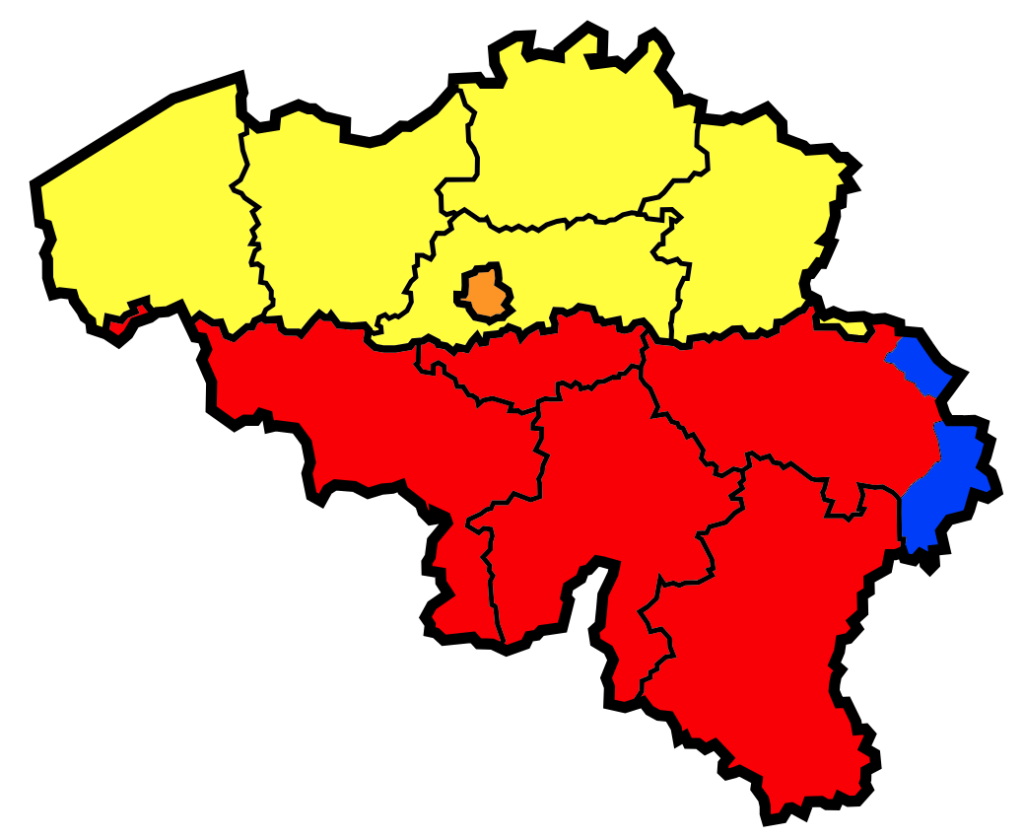Here are the comprehensive Power Sharing Notes, based primarily on the NCERT textbook for the CBSE Class 10 Civics syllabus, Chapter 1. These notes cover all key concepts of the chapter, including the case studies of Belgium and Sri Lanka, the importance of power-sharing, and various forms of power-sharing in modern democracies. Designed to help you understand and recall each topic effectively, the notes include simplified explanations, real-life examples, key political terms, and structured analysis. Whether you are revising for exams or building a strong foundation in political science, this chapter summary is your quick and reliable guide.

Stories of Belgium and Sri Lanka
Belgium is a small European country with a complex ethnic composition.
- 59% of the population lives in the Flemish region and speaks Dutch.
- 40% of the population lives in the Wallonia region and speaks French.
- The remaining 1% of Belgians speak German.
- The capital city, Brussels, has a different composition, with 80% of its population speaking French and 20% speaking Dutch.
- The French-speaking minority was historically wealthier and more powerful, which led to resentment from the Dutch-speaking community who gained the benefits of economic development and education later.
- Tensions between the two linguistic groups escalated during the 1950s and 1960s, particularly in Brussels.
Sri Lanka is an island nation with a diverse population, similar in size to the state of Haryana in India.
- The major social groups are the Sinhala-speakers (74%) and the Tamil-speakers (18%).
- Among the Tamils, there are two sub-groups: Sri Lankan Tamils, who are natives of the country (13%), and Indian Tamils, whose ancestors came from India as plantation workers.
- Sri Lankan Tamils are mainly concentrated in the northern and eastern parts of the country.
- Most Sinhala-speaking people are Buddhists, while most Tamils are either Hindus or Muslims.
- About 7% of the population is Christian, comprising both Tamils and Sinhalas.
Majoritarianism in Sri Lanka

- After gaining independence in 1948, leaders of the Sinhala community used their majority to try to dominate the government.
- The democratically elected government implemented a series of majoritarian measures to establish Sinhala supremacy.
- An act was passed in 1956 to make Sinhala the only official language, ignoring Tamil.
- The government favored Sinhala applicants for university positions and government jobs through preferential policies.
- A new constitution was created to protect and promote Buddhism as the state religion.
- These measures made the Sri Lankan Tamils feel alienated. They felt their language and culture were ignored, and they were discriminated against in jobs and other opportunities.
- Over time, relations between the Sinhala and Tamil communities became strained. Sri Lankan Tamils launched political parties and movements demanding recognition of Tamil as an official language, regional autonomy, and equal opportunities.
- Repeatedly denied autonomy for their provinces, several political organizations were formed by the 1980s, demanding an independent state called Tamil Eelam in the north and east of Sri Lanka.
- The distrust eventually escalated into a civil war that killed thousands of people from both communities. The conflict caused a major setback to the country’s social, cultural, and economic life and ended in 2009.
Accommodation in Belgium

- Unlike Sri Lanka, the leaders of Belgium recognized and respected the country’s regional differences and cultural diversity.
- Between 1970 and 1993, the Belgian leaders amended their constitution four times to create a power-sharing arrangement that would allow everyone to coexist within the same country.
- Key elements of the Belgian model include:
- The constitution requires an equal number of Dutch and French-speaking ministers in the central government.
- Special laws need the support of a majority of members from each linguistic group to prevent any single community from making unilateral decisions.
- Many central government powers were given to state governments, which are not subordinate to the central government.
- Brussels has a separate government where both communities have equal representation.
- A third type of government, the community government, was created. This government is elected by people of a single language community (Dutch, French, or German) and has the power to decide on cultural, educational, and language-related issues. * This arrangement, though complex, successfully prevented civic strife and a potential division of the country along linguistic lines.
Why is Power-Sharing Desirable?
There are two main reasons why power-sharing is considered desirable:
- Prudential Reasons: These are based on a careful calculation of gains and losses.
- Power-sharing helps to reduce the possibility of conflict between social groups.
- It’s a way to ensure the stability of the political order, as social conflict often leads to violence and political instability.
- Forcing the will of a majority on others may seem appealing in the short term, but it ultimately undermines national unity in the long run.
- Moral Reasons: These emphasize the act of power-sharing as a valuable principle in itself.
- Power-sharing is the very spirit of democracy.
- A democratic government involves sharing power with those who are affected by its decisions.
- Citizens have a right to be consulted on how they are governed. A legitimate government is one where citizens feel they have a stake in the system through participation.
Forms of Power-Sharing
In modern democracies, power-sharing arrangements can take several forms:
- Horizontal Distribution of Power: Power is shared among different government organs, such as the legislature, executive, and judiciary.
- This is called a horizontal distribution because it allows different organs, placed at the same level, to exercise different powers.
- Each organ can check the others, ensuring none of them can exercise unlimited power. This is known as a system of checks and balances.
- Vertical Division of Power: Power is shared among governments at different levels.
- This includes a general government for the entire country (e.g., the Central or Union Government in India) and governments at the provincial or regional level (e.g., State Governments).
- This arrangement is also known as a federal division of power. This system can be extended to lower levels of government, like municipalities and panchayats.
- Power Shared Among Different Social Groups: Power can be shared among diverse groups based on religion, language, or other social divisions.
- The “community government” in Belgium is a good example of this.
- Constitutional and legal provisions can also give a share of power to socially weaker sections and women, as seen in India with the system of ‘reserved constituencies’. This is done to prevent social groups from feeling alienated from the government.
- Power Shared Through Political Parties, Pressure Groups, and Movements: In a democracy, competition among different political parties ensures that power doesn’t stay in one hand.
- Power is shared among different political parties that represent different ideologies and social groups.
- When two or more parties form an alliance to contest elections and win, they form a coalition government, directly sharing power.
- Interest groups, such as those representing traders, businessmen, or farmers, can also influence government decisions and, thus, have a share in governmental power.